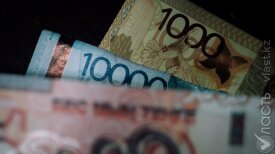On January 19, President Kassym-Jomart Tokayev dismissed the parliament and announced elections for its members and the members of regional assemblies for March 19. Tokayev thus gave the shortest notification allowed by the law (60 days). Now parties will have to arrange their campaign and pick candidates. For the first time in decades, in fact, the voting will take place with a mixed single-member and proportional system. The calling for early elections continues a decades-long tradition in Kazakhstan.
The ministry of justice said it registered a new party on January 19. Respublica, affiliated with a group of entrepreneurs, together with Baitaq, registered last December, is the first party in more than a decade to be officially recognized.
On January 14, Kazakhstan renewed half of the members of the Senate in early indirect elections.
After an unusual increased frequency in attacks on journalists and media outlets in the past week, Tokayev mandated law enforcement agencies to conduct a full investigation on the events. On January 14, the car of independent blogger Dinara Yegeubayeva was broken into and set on fire. On the night of January 18, three men vandalized popular YouTube journalist Vadim Boreiko’s front door. These are the latest of a series of attacks against newsrooms and individual journalists in the past few months.
Workers of the company KKS-Sicim went on strike on January 15 demanding their salaries to be increased by 50%. The Italy-Kazakhstan joint venture is one of the country’s largest oil and gas service companies. Around 1,000 workers at their operations near Aksai, to the north-east, refused to work until their demands were met. After a meeting with CEO Giuseppe Rodelli, the workers said they were not satisfied with his answers and continued to strike for the fourth consecutive day.
Former President Nursultan Nazarbayev underwent heart surgery on January 20. His spokesperson Aidos Ukibay said the procedure was successful and Nazarbayev is now under observation.
Kairat Kudaibergen, a former local deputy, will remain under arrest until March 21, an Almaty court told the press. Kudaibergen was arrested last year in April for having allegedly participated in the organization of the riots that took place during the most violent days of Bloody January.
In a rare good news, on January 19 the Ministry of Health said it had lifted the ban on the website of the World Health Organization, which had been blocked in Kazakhstan for three months after a court decision claiming that its content incited suicide.
From January 26, citizens of the Eurasian Economic Union (which besides Kazakhstan includes Armenia, Belarus, Kyrgyzstan, and Russia) will no longer enjoy a privileged status in their travels to Kazakhstan. Their ability to stay without a residence permit in the country will be limited to 90 days within a period of 180 days from the date of entry. Previously, EAEU citizens were able to leave the country and immediately re-enter to restart their 90-day visa-free period (a process popularly known as a “border run”).
Kazakhstan increased its share in the Eurasian Development Bank (EDB) from 33% to 37.3%. Until December 30, the Russian government owned a majority stake of 66%. The Russian share was now reduced to 44.7%. The other owners of EDB increased their share as well. Now, Belarus owns 5%, Armenia 4%, Kyrgyzstan 4%, and Tajikistan 4%. Experts argue that the dilution of Russia’s share is linked to western sanctions related to its war against Ukraine.
Kazakhstan’s government banned the export of onions in an effort to guarantee supplies and stabilize prices in the markets. In neighboring Russia and Uzbekistan, onions retail at a price 50% higher than in Kazakhstan. The three-month ban on exports will ensure market stability, the ministry of agriculture said.
Поддержите журналистику, которой доверяют.








